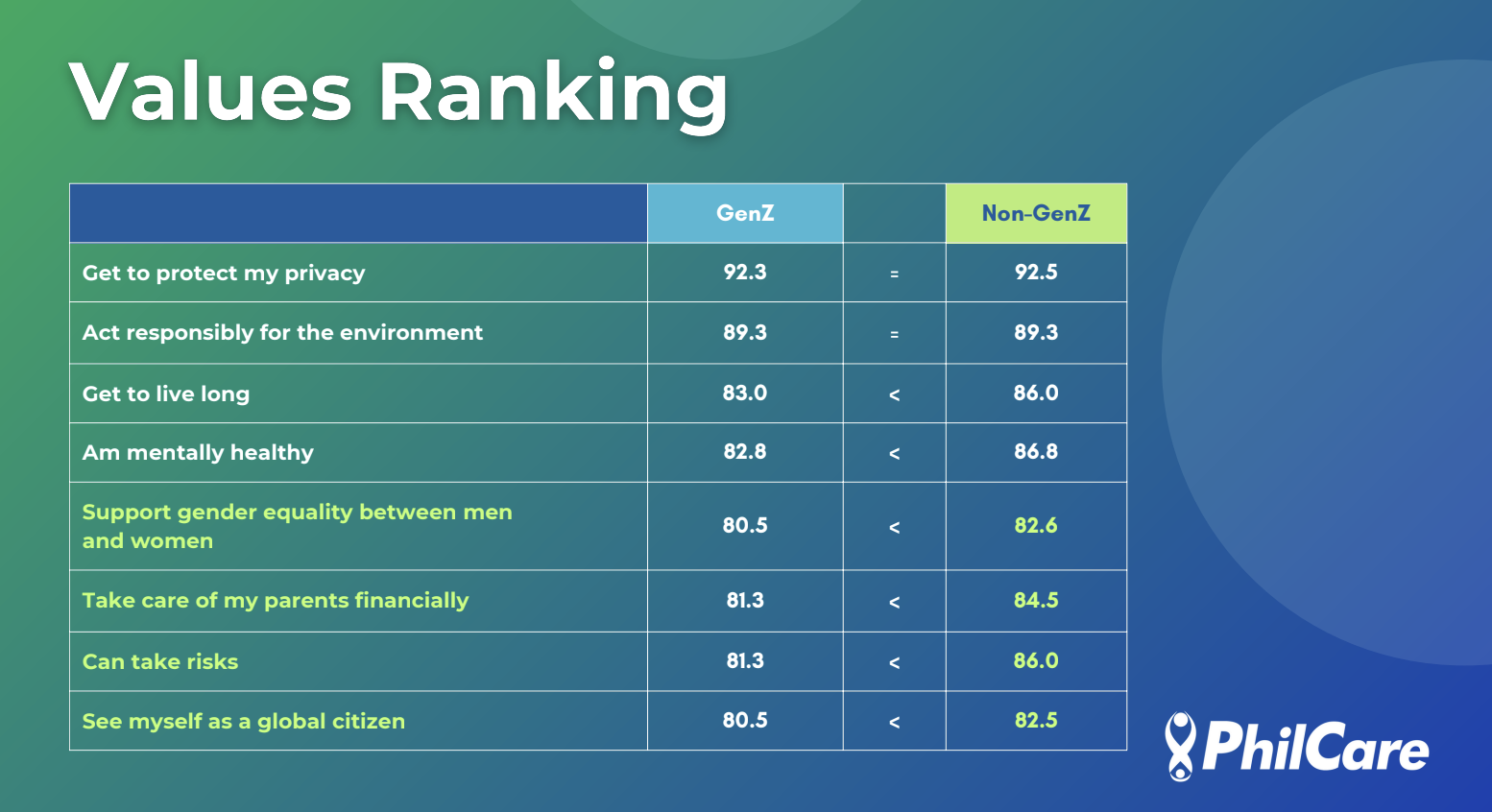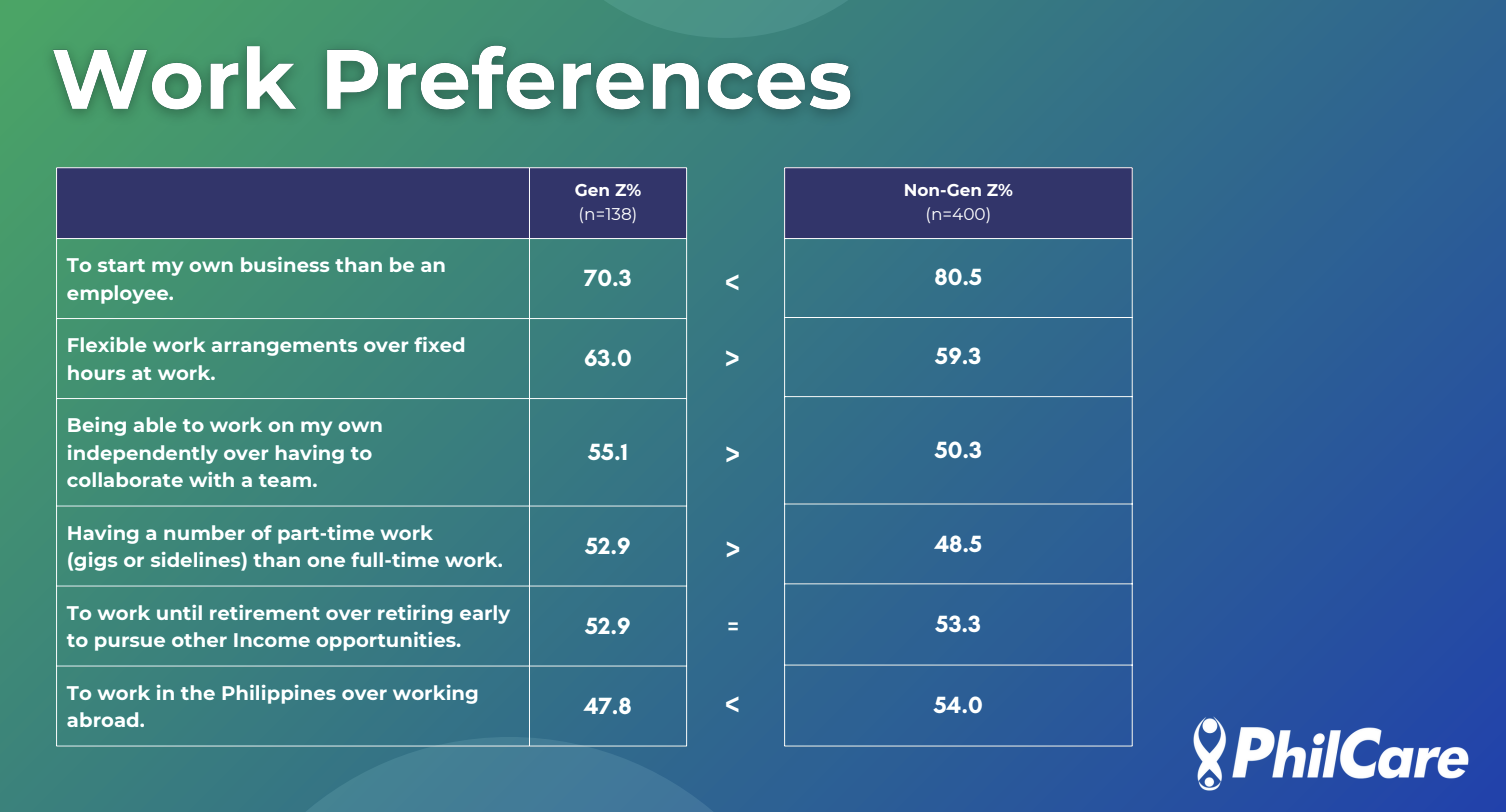Providing financial support to parents not a priority among Gen Z—Philcare study
And the gig economy will continue

The conversation about the Filipino culture of "utang na loob," where children are expected to support their parents once they get a job, recently sparked a heated discussion online, with people's perspectives divided on this issue.
In a timely manner, HMO provider PhilCare has released the latest results of their studies: "PhilCare Wellness Index: The ABCs of Pinoy Xs and Ys" and "PhilCare Wellness Index: The Rise of Filipino Gen Z." These studies offer a comparative analysis of three generations, aiming to uncover similarities, differences, and evolving dynamics within the workforce and society at large.
One of the intriguing findings of this study is that financial support for parents didn’t rank among the top three values for Gen Z. Instead, their top values include protecting privacy, acting responsibly for the environment, and living a longer life. This unique set of values reflects the distinct mindset of Gen Z.

“It’s because of the sense of individualism within the nuclear family,” PhilCare Wellness Index lead researcher Dr. Fernando Paragas told Manila Bulletin Lifestyle. “Before, you were part of the clan that includes your parents, grand parents, and then you support them. But because we are living in a period of greater sparsity, the purchasing power is weaker. You can just really support yourself and your family [If one already has a family of his own]. It’s the expectation versus reality. You want to help them but you can’t.”
This study also sheds light on a notable trend toward the "gig" (a slang word referring to a short-term job, typically involving freelance or independent work) economy among younger workers, with 53 percent of Gen Z respondents saying they prefer multiple part-time jobs over just one full-time job, compared to just 48 percent of Generation X and Y.

For context, Generation Z, or Zoomers, are those born between 1997 and 2015; Generation X are those born between 1965 and 1981; and Generation Y, or Millennials, are those born between 1981 and 1995.
"The preference for part-time work among Gen Zs reflects a desire for flexibility and autonomy in their careers," Dr. Fernando Paragas said. “To accommodate their preference, employers need to consider offering flexible arrangements as this can enhance employee satisfaction and attract top talents from Gen Z, and even perhaps other generations."